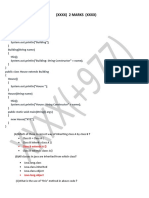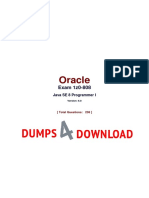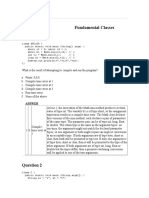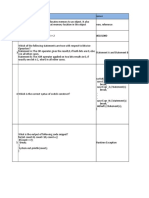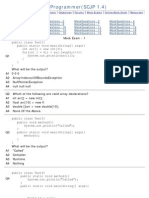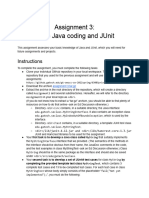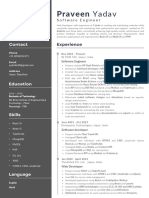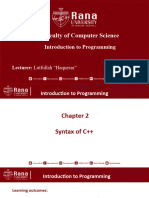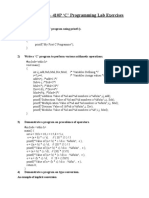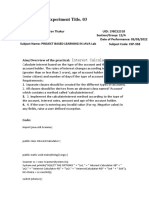0% found this document useful (0 votes)
23 views12 pagesPractice MCQs Java - Sheet1
The document contains a series of Java programming questions along with multiple-choice answers and the correct answer for each question. It covers various topics including syntax, data types, control structures, exceptions, and object-oriented programming concepts. The questions are designed to test knowledge of Java programming and its features.
Uploaded by
Vanshika SardanaCopyright
© © All Rights Reserved
We take content rights seriously. If you suspect this is your content, claim it here.
Available Formats
Download as PDF, TXT or read online on Scribd
0% found this document useful (0 votes)
23 views12 pagesPractice MCQs Java - Sheet1
The document contains a series of Java programming questions along with multiple-choice answers and the correct answer for each question. It covers various topics including syntax, data types, control structures, exceptions, and object-oriented programming concepts. The questions are designed to test knowledge of Java programming and its features.
Uploaded by
Vanshika SardanaCopyright
© © All Rights Reserved
We take content rights seriously. If you suspect this is your content, claim it here.
Available Formats
Download as PDF, TXT or read online on Scribd
/ 12
















